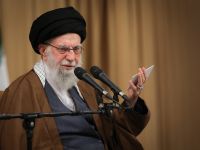A new research by Arab Advisors Group (AAG) analyzes how cellular operators licensing deals have built momentum for privatization and liberalization in the region. So far, cellular licenses have brought in close to $4 billion for Arab governments. AAG notes that while Morocco and Egypt structured winning deals, the Jordanians government has underestimated the potential value of the licenses.
Cellular operators licenses are proving to be a big cash cow for governments in the Middle East and North Africa (MENA) region, according to the recent AAG report. The revenue generated by several successful MENA countries has been a major impetus for cellular liberalization in the region. Overall, AAG estimates that liberalizing Arab MENA governments—such as Egypt, Morocco, Lebanon and Jordan—have cashed in close to $4 billion since the introduction of private GSM operators in the region.
“Various countries have adopted different approaches towards granting cellular licenses to operators with varying degrees of success. Countries that are now embarking on privatization are looking with interest at these models and trying to learn from them,” says Ahmed Naser, AAG regional research manager.
According to AAG, countries that have licensed private GSM operators, like Morocco and Egypt has each created in excess of a billion dollars in direct licensing cash each, not to mention other indirect revenues. AAG also believes that a country like Jordan has lost at least $150 million of potential licensing revenue—calculated by bench marking with other countries—by bundling the second cellular license as a deal sweetener when attracting a strategic investor for the government owned national telecom provider.
Lebanon, on the other hand, is in a unique situation with all the major players in the region waiting in anticipation to see the result of the on-going negotiations between the incumbent two cellular operators, whose duopoly ends in 2002, and operating license end in 2004. According to the Build, Operate, Transfer (BOT) agreement between the government and the two companies, Cellis and LibanCell, the government will automatically own the two networks and their subscribers in 2004, unless of course, they can reach an agreement to extend the licenses and buy their networks from the governments”.
According to AAG, Lebanon has more than 725,000 cellular subscribers today. Overall, AAG estimates the total number of cellular subscribers in the Arab World to be more than 7.6 million subscribers, expected to grow to more than 15 million subscribers by 2002. AAG Adds that the current suggested price for the licenses extension in Lebanon could help spur the local economy without further increasing the country’s national debt, estimated at $23 billion. — (Albawaba-MEBG)







